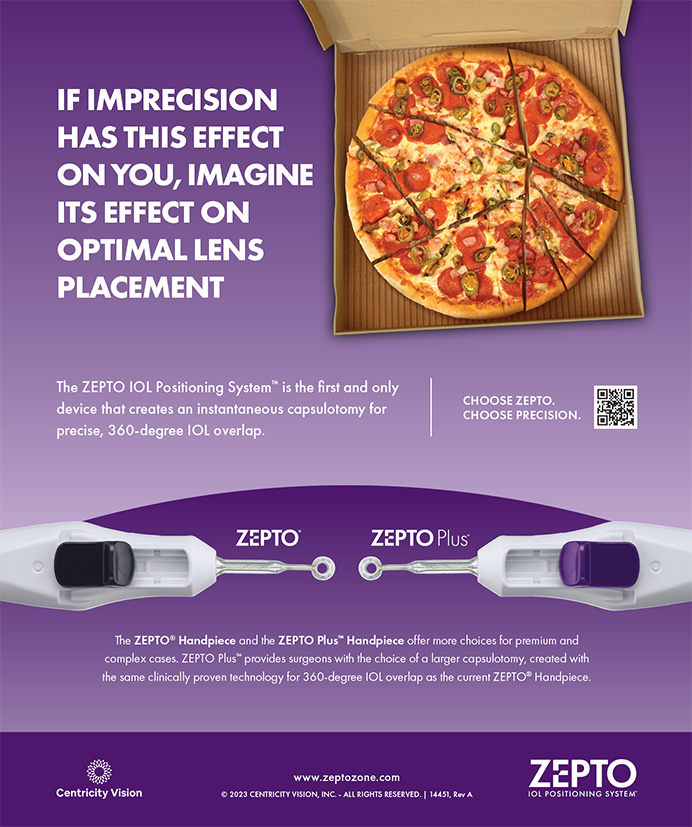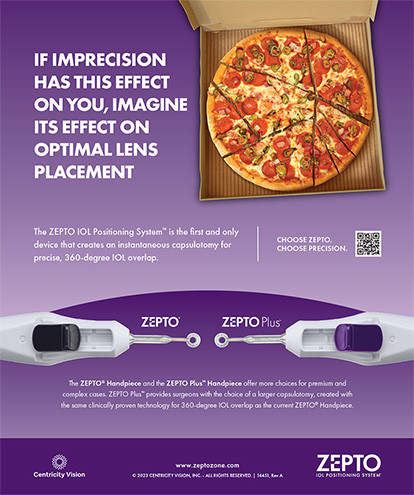Quite simply, I left academics for the same reason I entered it: to provide excellent care to patients and to perform research.
THE GOOD OLD DAYS
Equipped with a doctoral degree, a residency in internal medicine, and a fellowship in cornea and external disease, I accepted a position at The Emory Clinic in Atlanta almost 30 years ago. At the time, the clinical practice was a limited partnership operated by its member physicians. We managed the practice in the best interest of our patients to the best of our ability as physicians. Research contracts were negotiated and finalized by individual faculty members with the approval of the department chair, and institutional review boards (IRBs) did not review all of the clinical research protocols. Research partnerships with industry, consultancies with product developers, communication with manufacturers’ representatives, the receipt of drug samples, and the performance of industry-sponsored clinical research were all permitted.
I successfully obtained grants from the National Institutes of Health for both clinical and basic science studies and attracted industry-sponsored research projects. There was a symbiotic relationship between the clinic and Emory University; the former provided an excellent autonomous multispecialty practice environment, and the latter provided basic science support in an academic setting. Facilitated by the university environment, I could care for my patients and perform research to the best of my ability.
CHANGES
In time, administrators at the university balked at having to negotiate with the clinic’s physicians whenever they wanted to modify the relationship between the two entities. Eventually, the administrators were able to create a situation in which the clinic’s physicians had no choice but to dissolve the partnership and become employees of Emory Healthcare.
At that point, Emory Healthcare’s administrators began to dictate the way The Emory Clinic’s physicians practiced medicine. The former changed the administrative organization of the department and altered personnel policies. Then, the university adopted a policy on industry relations that made it extremely difficult for physicians to collaborate with industry as consultants or investigators. The Emory IRB also hampered doctors’ ability to carry out clinical research, both for sponsored clinical trials and for physician-sponsored studies.
In May 2009, supported by department chairs, Emory adopted an industry relations policy that made it nearly impossible for faculty members to perform any kind of industry-sponsored research or even to communicate with drug and device manufacturers. One of the provisions in this policy stated that faculty “may not accept medications and pharmaceutical samples from industry, even when purportedly for use by the individual and colleagues for patient care or education.” To me, the use of the term purportedly implied a presumption of dishonesty on the part of the faculty. I began to wonder whether I should continue to work for an employer that believed I might be deceitful.
Hoping to find support for my position, I went to our newly appointed chairperson, but I found none.1 I was unable to renew a consulting contract with industry that had existed for 4 years, despite the past approval of the university and the absence of changes in the contract’s provisions. The paperwork involved in grant requests became overwhelmingly time consuming. The university’s administrative officials began to tell me how to practice medicine, and a long-term employee was terminated over the objections of faculty members.
It would have been easy for me to give up; accept my salary; be satisfied with a productive academic career; enjoy the benefits of my recently conferred, named professorship; and slowly fade into retirement. I was so unhappy about my inability to be involved with new technology, provide optimal care to my patients, and carry out clinical research, however, that I was willing to give up everything to find happiness in another environment.
AN UNFORTUNATE TREND
Emory is not alone in instituting the changes that made it impossible for me to continue practicing there. When I became a faculty member in the early 1980s, clinical research in my field was performed almost exclusively at academic practices in the Unites States. Because of changes in academic institutions and at the FDA, clinical research today is moving from universities to private practices—for exactly the same reasons that prompted me to leave academics. There is also a transfer of clinical research from private practices in the United States to others overseas.
I am now a part of this trend, which I believe will have a predictable effect: reduced exposure of medical trainees to advanced technologies and the minds that create them, the loss of jobs from the United States to other countries, the exportation of intellectual assets from academic institutions and the United States, and eventually, the loss of a leadership role for the United States in medical innovation.
THE PRIVATE SECTOR
Since I left Emory, I have received solid support for my research efforts. In addition, I feel that I have more time to devote to patients’ care, because the administrative overhead associated with the academic environment has virtually disappeared. I deal with private IRBs that approve the same clinical protocols in days that required months for approval by the Emory IRB—not because the former are less demanding, but because they are professional, helpful, and efficient. I am able to negotiate contracts for industry-sponsored research autonomously, making my partners’ and my practice an attractive site for clinical trials. I am the medical director of our ambulatory surgical center, so it is operated for the good of our patients and physicians rather than the interests of the nursing staff, anesthesiologists, and administrators who dictated the operation of Emory’s ambulatory surgical center.
I now have the freedom to provide my patients with the best medical care of which I am capable without interference from nonphysicians. I can conduct research without overwhelming administrative overhead. I also work for an employer that assumes I am a fundamentally honest person rather than one who might receive drug samples that are “purportedly” for my own use.
CLOSING THOUGHTS
I found two things glaringly absent as I became increasingly unhappy in academia, told my supervisors I was thinking of leaving, and finally announced my decision to “retire.” First, nobody ever said to me, “We surely value your contribution to Emory. Is there anything we can possibly do to keep you here?” Second, no one ever conducted an exit interview in an effort to understand and possibly correct the issues that led to my departure. I am therefore under the impression that I was an insignificant part of a large academic institution and that I was correct in following my heart.
R. Doyle Stulting, MD, PhD, is the director of the Stulting Research Center at the Woolfson Eye Institute in Atlanta. Dr. Stulting may be reached at (770) 255- 3330; dstulting@woolfsoneye.com.


